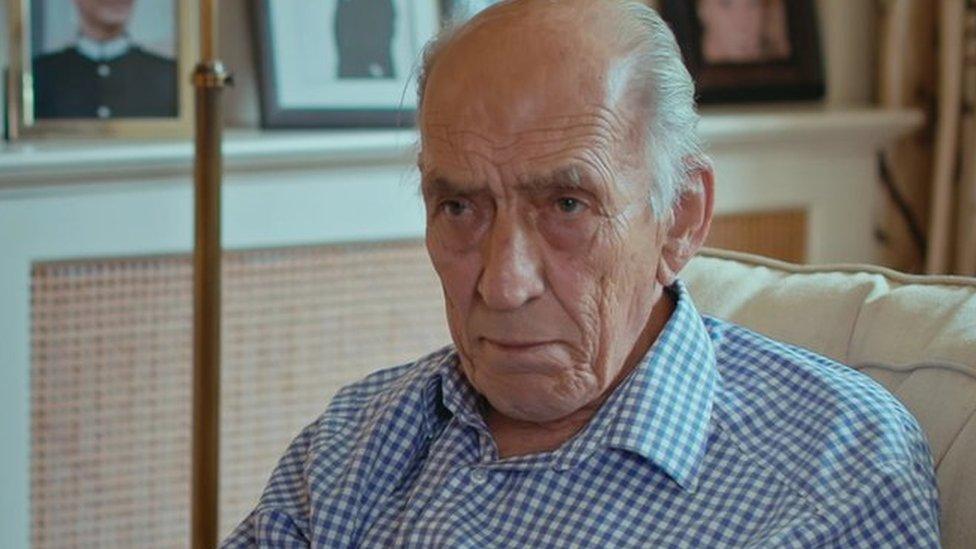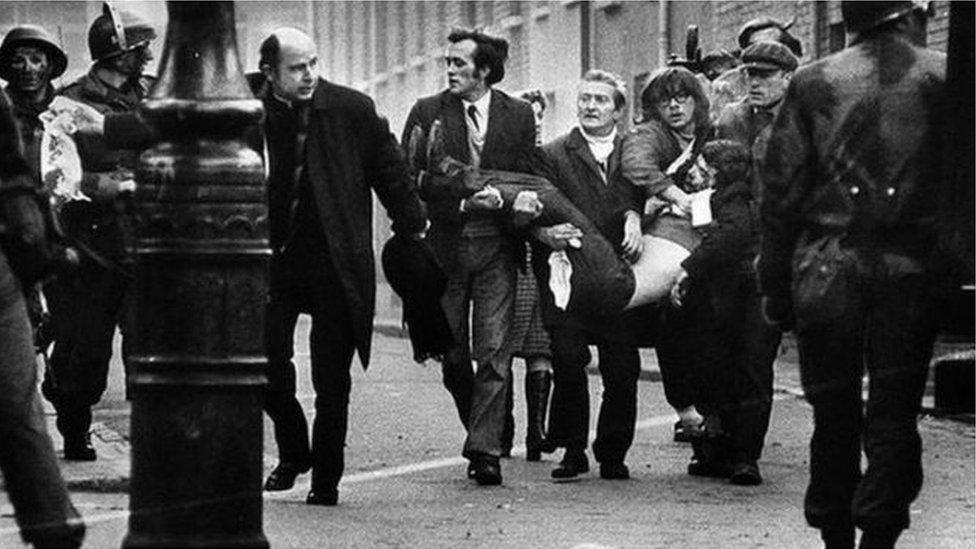Bloody Sunday families 'will not grieve' for ex-Army head
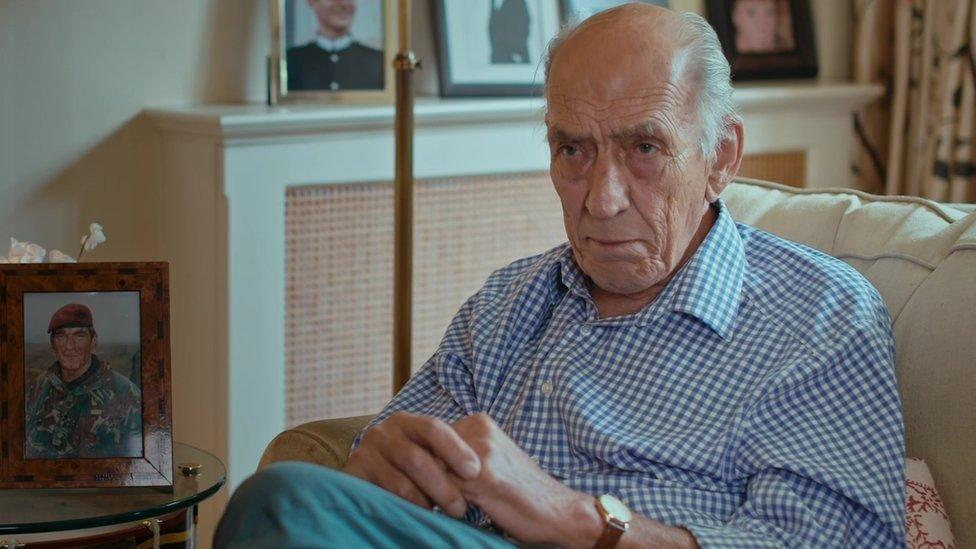
Gen Sir Mike Jackson was a former chief of the general staff
- Published
The death of General Sir Mike Jackson will not be mourned by the families of those killed on Bloody Sunday, the chair of the Bloody Sunday Trust has said.
Gen Jackson, who went on to become head of the Army, was a Parachute Regiment captain in Londonderry on 30 January 1972 when soldiers shot dead 13 civil rights demonstrators.
The British Army said Gen Jackson would be "greatly missed, and long remembered"., external
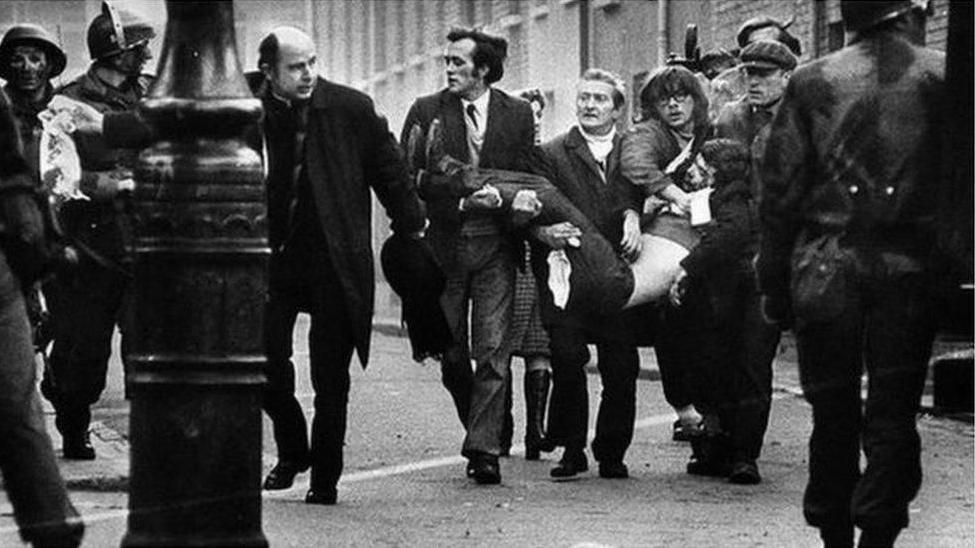
Thirteen people were killed and 15 wounded on Bloody Sunday
Chair of the Bloody Sunday Trust Tony Doherty said “there will be no grieving the loss of this man,” by the Bloody Sunday families.
“He wreaked havoc in Derry and elsewhere in the 1970s... there will be no mourning here," he added.
In addition to the 13 people killed on Bloody Sunday, at least 15 others were injured.
Bloody Sunday is widely regarded as one of the darkest days of the Northern Ireland Troubles.
In 2010, the then Prime Minister David Cameron, made a public apology to Bloody Sunday victims following the publication of the findings of the Saville Inquiry.
In 2003, Gen Jackson gave evidence to the inquiry in relation to how he wrote a note regarding what soldiers said about why they had fired.
Saville said that the circumstances under which the list was compiled were "far from ideal".
But the report added: "We accept Captain Jackson's evidence of the purpose for which the list was initially prepared; and find nothing sinister in the fact that it did not include details such as the names of the soldiers and the number of rounds fired."
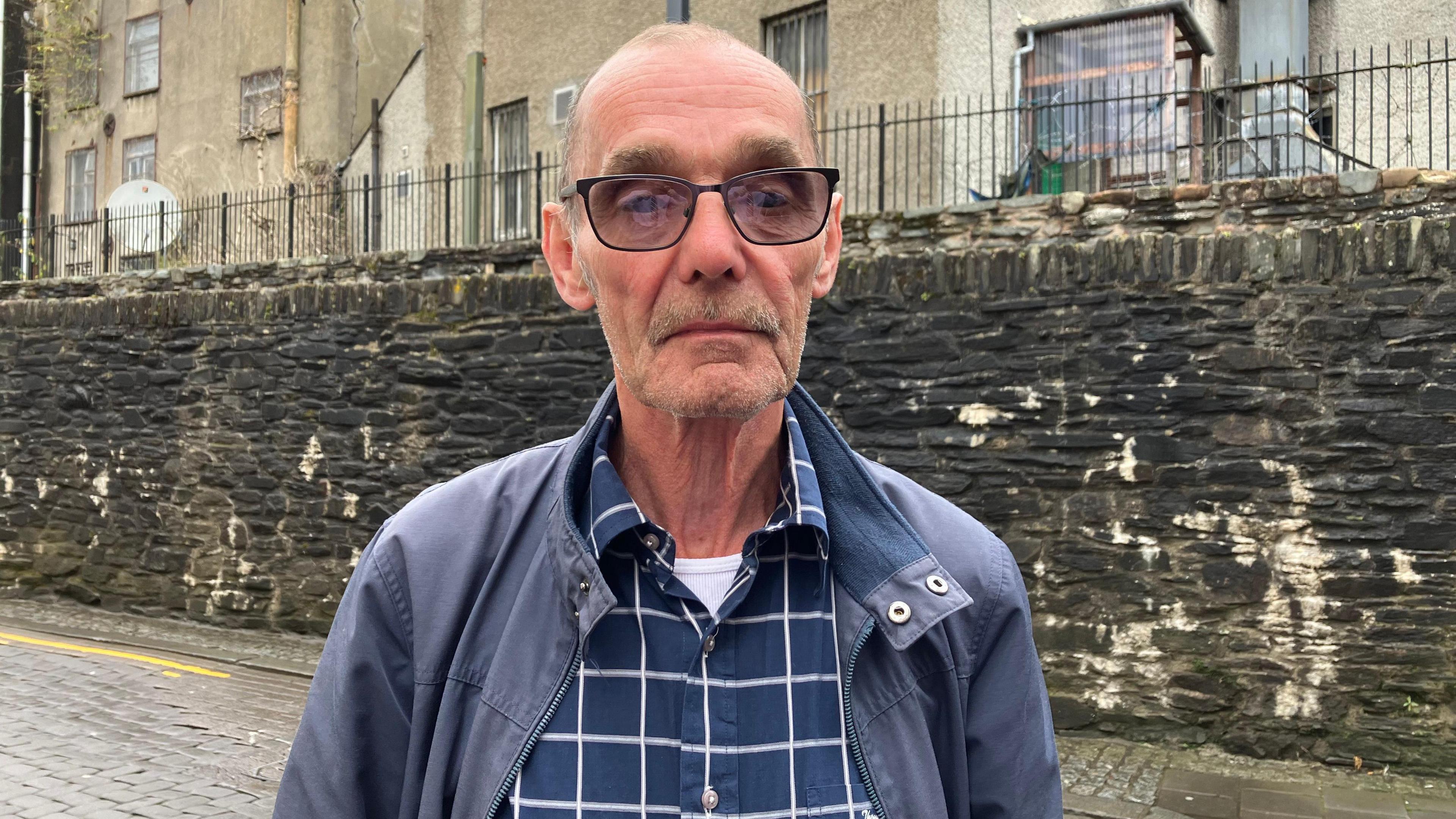
Lima Wray said unlike those who died on Bloody Sunday, Gen Jackson had lived a long life
Liam Wray, whose brother Jim was killed on Bloody Sunday, told BBC News NI he did not “celebrate the demise of anybody”.
“But Michael Jackson lived a long life of 80 years and died a natural death, not the victims of Ballymurphy or the victims of Derry… although I do not celebrate his death, I will not regret it,” he added.
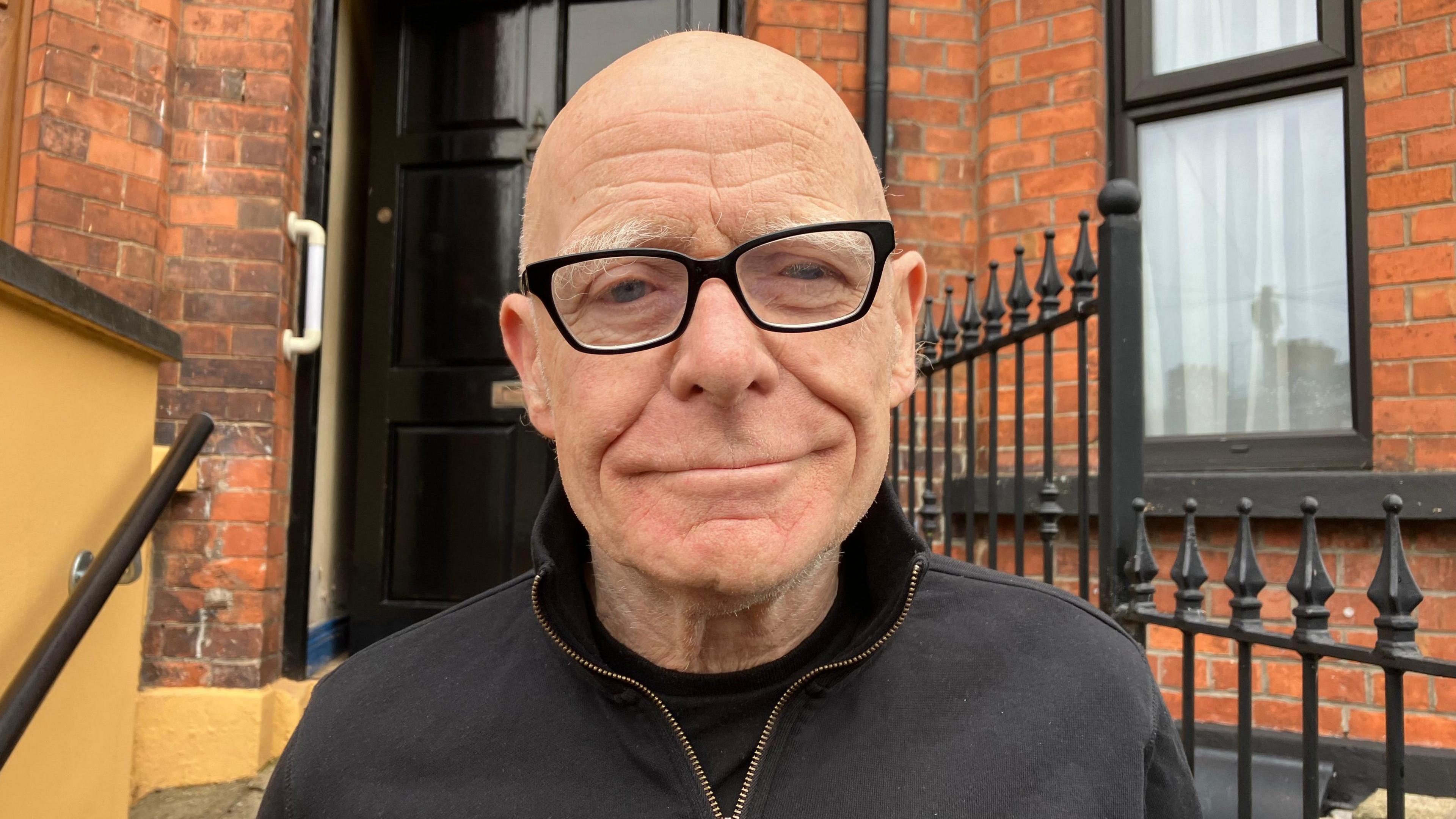
Eamonn McCann said events in Derry and Ballymurphy changed the course of the Troubles
Veteran journalist Eamonn McCann, a former chairman of the Bloody Sunday Trust, said Gen Jackson would be remembered “with revulsion” by many in Derry.
“We can trace the history of the Troubles anyway we want… but what happened under Michael Jackson’s command in Belfast and Derry was a hinge point for the Troubles, changed the course and trajectory of the Troubles," he said.
'Synonymous with the parachute regiment'
Speaking on BBC Radio Ulster's Good Morning Ulster programme journalist Peter Taylor said the general was “perhaps the best known face of the Army of his generation” who was “synonymous with the parachute regiment”.
“I was there on Bloody Sunday and discussed it with Mike Jackson several years later... and I know how divisive a figure Mike became because he was there on Bloody Sunday as Colonel Wilford’s adjutant,” Mr Taylor said.
Gen Jackson was also a captain with the 1st Battalion of the Parachute Regiment when 10 people were shot dead in Ballymurphy in Belfast in August 1971.
He later attended the Ballymurphy Inquest, where he denied there was a "cover-up" over the shootings.
It found in 2021 that the victims were "entirely innocent".
'Deflected our loss and suffering'
In a statement, the Ballymurphy families said Gen Jackson “began the narrative that all those killed in Ballymurphy and Bloody Sunday were gunmen”.
They added that "that lie stayed with the Ballymurphy massacre victims for over 50 years”.
In a statement they said he had had an opportunity to “accept his wrongdoing and apologise” at the inquest, but he "deflected our loss, pain and suffering".
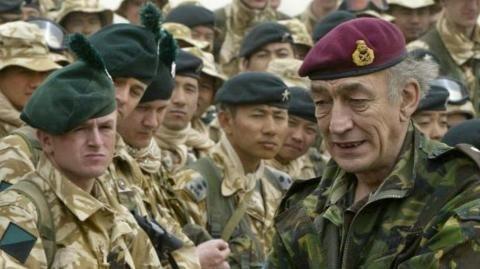
General Sir Mike Jackson was awarded the Distinguished Service Order for leadership
Foyle MP Colum Eastwood said his thoughts were with the Bloody Sunday and Ballymurphy families.
"No doubt this will bring back very difficult memories of their loved ones and the decades long crusade they were forced to go through in an attempt to uncover the truth and secure justice," he added.
Gen Jackson later rose to command the regiment's First Battalion between 1984 and 1986.
Between 1995 and 1996 he commanded the UN peacekeeping force in Bosnia.
During the Kosovo campaign he was awarded the Distinguished Service Order for leadership.
He became head of the Army just a month before the Iraq war began, replacing Gen Sir Michael Walker.
'Soldier's soldier'
DUP MP Gregory Campbell described him as a general of “high standing” but accepted he “will be viewed in different ways”.
“I think history will judge him more kindly than some of the comments that have been made about his demise,” he said.
“Some of the comments surrounding the event of his death have been appalling and really are an indictment of the people making them rather than the man.”
The Ulster Unionist MLA and former soldier, Doug Beattie, described Gen Jackson as a “controversial figure” in Northern Ireland due to his service with the parachute regiment.
“Few from the nationalist community will mourn his passing and that is understandable,” Beattie said.
“Yet within the military, he was viewed very differently.”
He met Gen Jackson on several occasions in Kosovo and Kuwait and said he was referred to as the “Dark Lord” - a military figure to be avoided at times “particularly if you were a senior commander that didn’t meet his exacting standards”.
“He was a no-nonsense leader, a soldier’s soldier, committed to the welfare of his men and the professionalism of the Army that he led,” Beattie said.
- Published16 October 2024
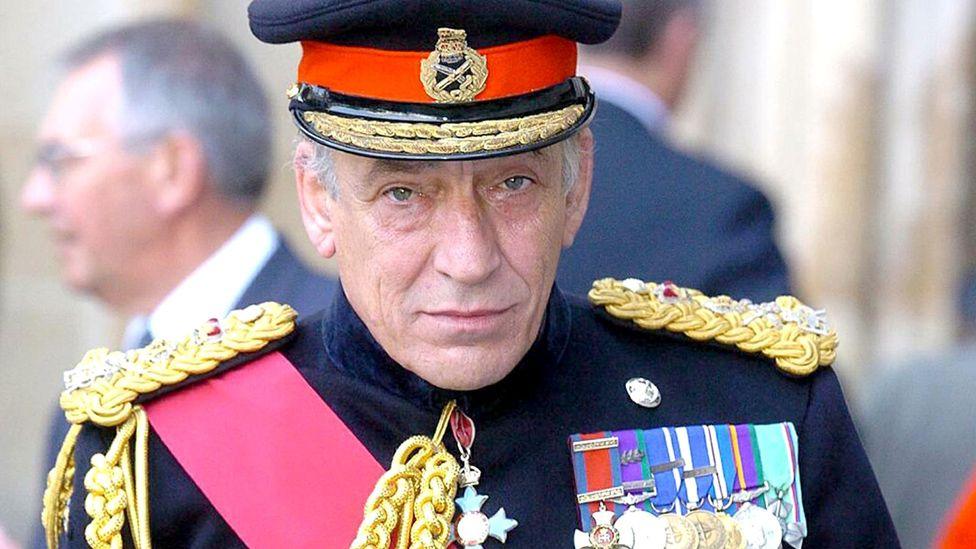
- Published20 January 2023
